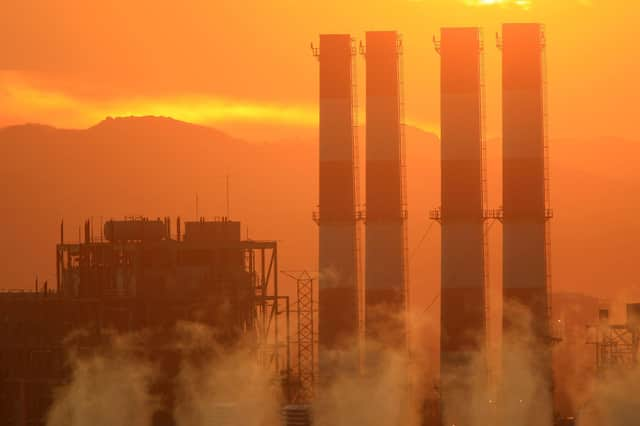Climate change: World leaders at Glasgow's Cop26 summit must not listen to the poison dripped into their ears by Big Oil – Dr Richard Dixon


With record temperatures and major fires in western US, Canada and Siberia, huge storms driving people from their homes in China, and terrible floods in Germany and Belgium, the world is clearly telling us to do something about climate change.
The world’s nations came together in Rio de Janeiro in 1992 for the Earth Summit and agreed a UN convention on climate change, including targets to stabilise emissions.
Advertisement
Hide AdAdvertisement
Hide AdThe first follow-up, the Conference of the Parties to the UN Framework Convention on Climate Change, or Cop1, was in Berlin in 1995 and the one in Glasgow in November will be the 26th.
Along the way have been Cop3 in Kyoto, spawning the protocol that was supposed to reduce rich countries emissions, Cop15 in Copenhagen, which failed to produce the expected deal, and Cop21 in Paris which did produce a global agreement, albeit almost entirely voluntary.
So the world’s nations agreed climate change was a problem and that they should all do something about it nearly three decades ago and they have met 25 times to try to make progress.
How are we doing? There have been some successes but between 1992 and 2018 global greenhouse gas emissions grew by 53 per cent. The only times emissions have seen a significant fall from the year before were during the 2008-9 global economic crisis and the Covid pandemic. And emissions have to fall to ZERO before temperatures stop rising.
Some argue that the whole process is so flawed and ineffective that we should just abandon it. But the UN climate talks each year, and the processes of negotiating, monitoring and reporting that run between them, are the only global forum with any legal force where countries talk about climate change.
Being a UN process, the Cop summits are a democratic space with one country, one vote. But democratic discussion between parties with huge vested interests is not a way to get swift action on anything. Nonetheless, frustrating and imperfect as the process is, the annual Cop meetings are vitally important.
Also vitally important is to keep up pressure on the countries at the Cop and the process itself.
That means exposing the bullying tactics that the US tried to use in 2000 to try to stop countries voting for stronger action, the delaying tactics from a whole range of countries, arguing over a single word or phrase for hours to stop agreement, the fossil fuel lobbyists who are allowed in to drip their poison in delegates’ ears, the failed promises on climate finance, and the whole range of technical fixes and market mechanisms that would let rich countries off the hook while placing burdens on people in poorer countries.
Advertisement
Hide AdAdvertisement
Hide AdBecause of Covid, we still don’t know how many official delegates will turn up in person, with a big risk that poorer countries will be under-represented because of vaccine access, nor how many people will be able to be in Glasgow outside the conference centre, including to march and rally to demonstrate public support for much stronger climate action.
But, whether there in person or tracking the talks online, hundreds of thousands will be putting on the pressure.
Dr Richard Dixon is director of Friends of the Earth Scotland
A message from the Editor:
Thank you for reading this article. We're more reliant on your support than ever as the shift in consumer habits brought about by coronavirus impacts our advertisers.
If you haven't already, please consider supporting our trusted, fact-checked journalism by taking out a digital subscription.
Comments
Want to join the conversation? Please or to comment on this article.
